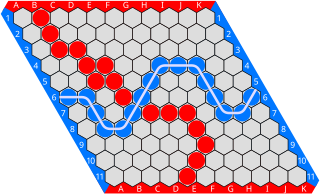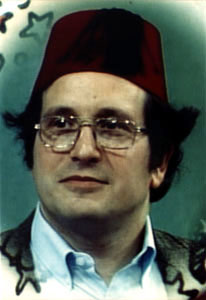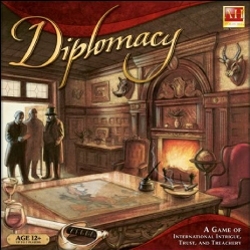Related Research Articles

Gomoku, also called Five in a Row, is an abstract strategy board game. It is traditionally played with Go pieces on a 15×15 Go board while in the past a 19×19 board was standard. Because pieces are typically not moved or removed from the board, gomoku may also be played as a paper-and-pencil game. The game is known in several countries under different names.

Quake III Arena is a 1999 multiplayer-focused first-person shooter developed by id Software. The third installment of the Quake series, Arena differs from previous games by excluding a story-based single-player mode and focusing primarily on multiplayer gameplay. The single-player mode is played against computer-controlled bots. It features music composed by Sonic Mayhem and Front Line Assembly founder Bill Leeb.

Hex is a two player abstract strategy board game in which players attempt to connect opposite sides of a rhombus-shaped board made of hexagonal cells. Hex was invented by mathematician and poet Piet Hein in 1942 and later rediscovered and popularized by John Nash.

Deep Blue was a chess-playing expert system run on a unique purpose-built IBM supercomputer. It was the first computer to win a game, and the first to win a match, against a reigning world champion under regular time controls. Development began in 1985 at Carnegie Mellon University under the name ChipTest. It then moved to IBM, where it was first renamed Deep Thought, then again in 1989 to Deep Blue. It first played world champion Garry Kasparov in a six-game match in 1996, where it lost four games to two. It was upgraded in 1997 and in a six-game re-match, it defeated Kasparov by winning two games and drawing three. Deep Blue's victory is considered a milestone in the history of artificial intelligence and has been the subject of several books and films.
The Computer Olympiad is a multi-games event in which computer programs compete against each other. For many games, the Computer Olympiads are an opportunity to claim the "world's best computer player" title. First contested in 1989, the majority of the games are board games but other games such as bridge take place as well. In 2010, several puzzles were included in the competition.

Gerald Jay Sussman is the Panasonic Professor of Electrical Engineering at the Massachusetts Institute of Technology (MIT). He has been involved in artificial intelligence (AI) research at MIT since 1964. His research has centered on understanding the problem-solving strategies used by scientists and engineers, with the goals of automating parts of the process and formalizing it to provide more effective methods of science and engineering education. Sussman has also worked in computer languages, in computer architecture, and in Very Large Scale Integration (VLSI) design.

The Smart Game Format (SGF) is a file format used for storing records of board games. Go is the game that is most commonly represented in this format and is the default. SGF was originally created under a different name by Anders Kierulf for his SmartGO program.

Computer Go is the field of artificial intelligence (AI) dedicated to creating a computer program that plays the traditional board game Go. The field is sharply divided into two eras. Before 2015, the programs of the era were weak. The best efforts of the 1980s and 1990s produced only AIs that could be defeated by beginners, and AIs of the early 2000s were intermediate level at best. Professionals could defeat these programs even given handicaps of 10+ stones in favor of the AI. Many of the algorithms such as alpha-beta minimax that performed well as AIs for checkers and chess fell apart on Go's 19x19 board, as there were too many branching possibilities to consider. Creation of a human professional quality program with the techniques and hardware of the time was out of reach. Some AI researchers speculated that the problem was unsolvable without creation of human-like AI.

Dabbala Rajagopal "Raj" Reddy is an Indian-American computer scientist and a winner of the Turing Award. He is one of the early pioneers of artificial intelligence and has served on the faculty of Stanford and Carnegie Mellon for over 50 years. He was the founding director of the Robotics Institute at Carnegie Mellon University. He was instrumental in helping to create Rajiv Gandhi University of Knowledge Technologies in India, to cater to the educational needs of the low-income, gifted, rural youth. He was the founding chairman of International Institute of Information Technology, Hyderabad. He is the first person of Asian origin to receive the Turing Award, in 1994, known as the Nobel Prize of Computer Science, for his work in the field of artificial intelligence.
Combinatorial game theory measures game complexity in several ways:
- State-space complexity,
- Game tree size,
- Decision complexity,
- Game-tree complexity,
- Computational complexity.

Unreal Tournament is a first-person arena shooter video game developed by Epic Games and Digital Extremes. The second installment in the Unreal series, it was first published by GT Interactive in 1999 for Windows, and later released on the PlayStation 2 and Dreamcast by Infogrames in 2000 and 2001, respectively. Players compete in a series of matches of various types, with the general aim of out-killing opponents. The PC and Dreamcast versions support multiplayer online or over a local area network. Free expansion packs were released, some of which were bundled with a 2000 re-release: Unreal Tournament: Game of the Year Edition.
A computer poker player is a computer program designed to play the game of poker, against human opponents or other computer opponents. It is commonly referred to as pokerbot or just simply bot. As of 2019, computers can beat any human player in poker.

Rodney Allen Brooks is an Australian roboticist, Fellow of the Australian Academy of Science, author, and robotics entrepreneur, most known for popularizing the actionist approach to robotics. He was a Panasonic Professor of Robotics at the Massachusetts Institute of Technology and former director of the MIT Computer Science and Artificial Intelligence Laboratory. He is a founder and former Chief Technical Officer of iRobot and co-Founder, Chairman and Chief Technical Officer of Rethink Robotics and currently is the co-founder and Chief Technical Officer of Robust.AI.
In video games, artificial intelligence (AI) is used to generate responsive, adaptive or intelligent behaviors primarily in non-playable characters (NPCs) similar to human-like intelligence. Artificial intelligence has been an integral part of video games since their inception in the 1950s. AI in video games is a distinct subfield and differs from academic AI. It serves to improve the game-player experience rather than machine learning or decision making. During the golden age of arcade video games the idea of AI opponents was largely popularized in the form of graduated difficulty levels, distinct movement patterns, and in-game events dependent on the player's input. Modern games often implement existing techniques such as pathfinding and decision trees to guide the actions of NPCs. AI is often used in mechanisms which are not immediately visible to the user, such as data mining and procedural-content generation.

Progress in artificial intelligence (AI) refers to the advances, milestones, and breakthroughs that have been achieved in the field of artificial intelligence over time. AI is a multidisciplinary branch of computer science that aims to create machines and systems capable of performing tasks that typically require human intelligence. Artificial intelligence applications have been used in a wide range of fields including medical diagnosis, economic-financial applications, robot control, law, scientific discovery, video games, and toys. However, many AI applications are not perceived as AI: "A lot of cutting edge AI has filtered into general applications, often without being called AI because once something becomes useful enough and common enough it's not labeled AI anymore." "Many thousands of AI applications are deeply embedded in the infrastructure of every industry." In the late 1990s and early 21st century, AI technology became widely used as elements of larger systems, but the field was rarely credited for these successes at the time.

The Turing test, originally called the imitation game by Alan Turing in 1950, is a test of a machine's ability to exhibit intelligent behaviour equivalent to, or indistinguishable from, that of a human. Turing proposed that a human evaluator would judge natural language conversations between a human and a machine designed to generate human-like responses. The evaluator would be aware that one of the two partners in conversation was a machine, and all participants would be separated from one another. The conversation would be limited to a text-only channel, such as a computer keyboard and screen, so the result would not depend on the machine's ability to render words as speech. If the evaluator could not reliably tell the machine from the human, the machine would be said to have passed the test. The test results would not depend on the machine's ability to give correct answers to questions, only on how closely its answers resembled those a human would give. Since the Turing test is a test of indistinguishability in performance capacity, the verbal version generalizes naturally to all of human performance capacity, verbal as well as nonverbal (robotic).

Diplomacy is a strategic board game created by Allan B. Calhamer in 1954 and released commercially in the United States in 1959. Its main distinctions from most board wargames are its negotiation phases and the absence of dice and other game elements that produce random effects. Set in Europe in the years leading to the First World War, Diplomacy is played by two to seven players, each controlling the armed forces of a major European power. Each player aims to move their few starting units and defeat those of others to win possession of a majority of strategic cities and provinces marked as "supply centers" on the map; these supply centers allow players who control them to produce more units. Following each round of player negotiations, each player can issue attack and support orders, which are then executed during the movement phase. A player takes control of a province when the number of provinces that are given orders to support the attacking province exceeds the number of provinces given orders to support the defending province.
Darkforest is a computer go program developed by Meta Platforms, based on deep learning techniques using a convolutional neural network. Its updated version Darkfores2 combines the techniques of its predecessor with Monte Carlo tree search. The MCTS effectively takes tree search methods commonly seen in computer chess programs and randomizes them. With the update, the system is known as Darkfmcts3.

Monopoly is a 1999 computer game based on the board game Monopoly, released for Microsoft Windows and Macintosh. Developed by Artech Studios, it was published by Hasbro Interactive, Inc. for Windows and MacSoft for the Mac. This title was one of many inspired by the property-dealing board game. It uses the same box art as a 1998 reissue of the 1995 Monopoly PC game. This game proved to be popular and was re-released as Monopoly New Edition on September 30, 2002, published by Infogrames. The only major difference between this game and its re-release was the absence of the board editor in Monopoly 3. A PlayStation Portable version of this game was released in 2008.
References
- ↑ McCarthy, Peggy (11 November 1999). "Professor Sees a Toy, Then Invents Game". The New York Times. Retrieved 18 July 2014.
- ↑ Schaeffer, Jonathan; van den Herik, H.Jaap (2002). "Games, computers, and artificial intelligence". Artificial Intelligence. 134 (1–2): 1–7. doi:10.1016/S0004-3702(01)00165-5.
- ↑ Sutton, Charles (2002-06-01). "COMPUTERS AND OCTI: REPORT FROM THE 2001 TOURNAMENT" (PDF). ICGA Journal. 25 (2): 105–112. doi:10.3233/ICG-2002-25209.